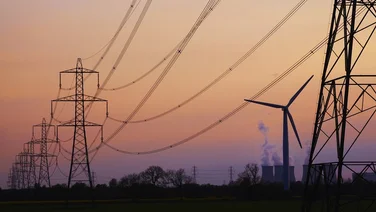- The funding for the green bus fleet has been allocated to 12 local authorities across England
- Nottinghamshire County Council will benefit from £2.6m to launch 42 new electric buses
- It comes as the government made changes to the Zero Emission Vehicle Mandate last week

The government has invested nearly £38m to propel forward green transport, with 319 new zero-emission buses being delivered to communities across England.
The funding has been allocated to 12 local authorities across England following bids to expand their zero emission bus fleets, and will see 319 cleaner, more comfortable buses serving passengers by spring 2027.
It comes as the government made changes to the Zero Emission Vehicle Mandate last week, including increasing flexibility of the mandate up to 2030 and allowing hybrid vehicles to be sold until 2035. This is with the aim of supporting UK electric vehicle (EV) manufacturers, according to local transport minister, Simon Lightwood.
On 8 April, Lightwood visited Hull to see how the funding will bring improved journeys for passengers and discussed how highly skilled engineering and construction jobs will be created locally as electric bus infrastructure is delivered.
He said the funding will not only make bus travel cleaner, greener and more comfortable, but it will deliver on the government’s Plan for Change, creating jobs, supporting local economies and accelerating the journey towards a zero emission future.
“By backing local councils and UK manufacturers, we are putting the power in the hands of the communities, while helping to deliver on our vision of a sustainable, green transport network.” he added. “From Hull to Hove, there’s an electrifying future on the way for our buses.”
Among the biggest “winners” are Nottinghamshire County Council, which will benefit from £2.6m to launch 42 new electric buses, Hull City Council, where £3.9m has been allocated to provide 42 vehicles and the West of England Combined Authority, which will receive nearly £20m for 160 buses.
The funding comes on top of the Zero Emission Bus Regional Area 2 (ZEBRA 2) program, which has funded a further 995 zero emission buses.
According to Lightwood, this funding will see vital bus routes given a “new lease of life”. He said that, as an example, in Bristol, where funding will be used to expand zero emission bus services across 22 different routes through the city will connect passengers with vital services, including hospitals and universities.
Matt Cranwell, Stagecoach East Midlands managing director, said the new government funding, supported by significant investment by bus operators, will play a “key role in Stagecoach’s transition to green bus fleets”.
Currently, 60% of buses are funded by previous ZEBRA investments are being procured from domestic firms, supporting highly skilled jobs and growing regional economies to improve living standards, as per the government’s Plan for Change.
Regional leaders and leading manufacturers are also being given a voice on zero emission plans – through the UK bus manufacturing expert panel – which seeks to put local people at the heart of bus building.
Matt Carney, CEO, Go-Ahead Bus, said the company was partnering with the the Department of Transport so that “ customers across the UK can access cleaner, greener public transport”, claiming that the funding will “support new zero-emissions buses in Hull, Salisbury, Brighton and Hove, Plymouth and Isle of Wight”.
The incoming Bus Services Bill will allow local authorities to operate their own services, but also include a measure to ultimately end the use of new diesel and petrol buses across England. It is expected to progress into the House of Commons shortly.
The local transport minister also visited Wrightbus’ site in Ballymena last week, to continue engagement around the green future of bus manufacturing and mark the significant milestone of their fleet passing 50 million green miles travelled.






